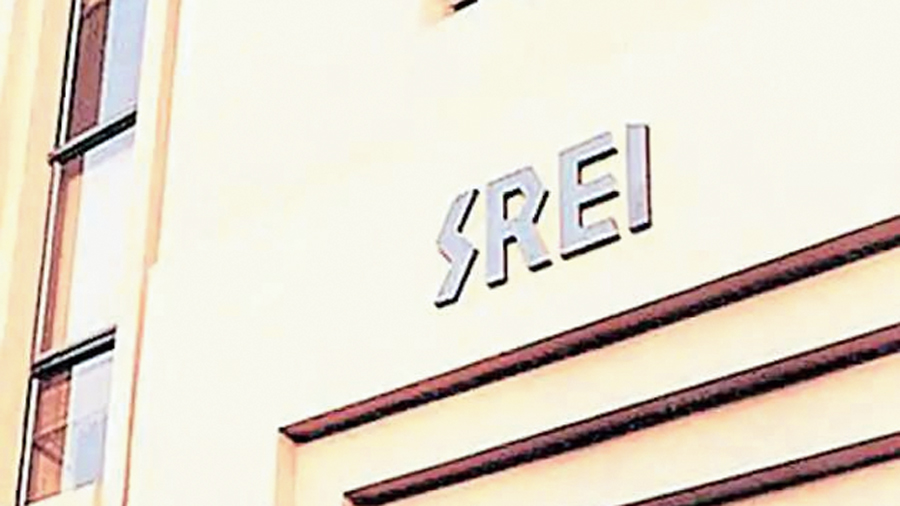The Reserve Bank of India has ordered the supersession of the board of directors of Srei Infrastructure Finance (SIFL) and Srei Equipment Finance (SEFL) — the two non-banking finance entities of the Kanoria-owned Srei group.
Rajneesh Sharma, former chief general manager of Bank of Baroda, has been appointed as the administrator of the two companies.
A three-member advisory committee has been formed to help the administrator discharge of his duties. The committee includes R. Subramaniakumar, former MD and CEO of Indian Overseas Bank, T. T. Srinivasaraghavan, former MD of Sundaram Finance Limited and Farokh N Subedar, former chief operating officer and company secretary of Tata Sons Limited.
The banking regulator exercised its powers under section 45-IE (1) of the Reserve Bank of India Act, 1934 to supersede the boards of the two entities because of corporate governance concerns and their failure to meet their loan repayment obligations.
The banks are expected to initiate insolvency proceedings against the two SREI entities — only the second time that the banking regulator has done so.
In 2019, the regulator had launched insolvency proceedings against Dewan Housing Finance Corp which was eventually acquired by the Piramal group for Rs 34,250 crore.
“The Reserve Bank ...intends to shortly initiate the process of resolution of the ... two NBFCs under the Insolvency and Bankruptcy (Insolvency and Liquidation Proceedings of Financial Service Providers and Application to Adjudicating Authority) Rules, 2019 and would also apply to the NCLT for appointing the Administrator as the Insolvency Resolution Professional,” said RBI.
“We are shocked by the RBI’s move as banks have been regularly appropriating funds from the escrow account they have controlled since November 2020. Moreover, we have not received any communications from banks on any defaults. Almost Rs 3,000 crore has been collected by them,” the Srei group spokesperson told The Telegraph, adding that they were exploring legal options.
The Srei spokesperson said the group had submitted a proposal in October 2020 to pay the full amount to banks under a scheme filed under section 230 of the Companies Act 2013.
“They have neither accepted the scheme nor proposed a payment schedule acceptable to them. The NCLT order for all creditors is still in process. There is also an order directing the creditors and the regulator not to adopt coercive measures. We will take all necessary steps as advised by our lawyers in this regard,” he added.
The spokesperson said that over the past three decades the Srei Group had paid Rs 30,000 crore by way of interest and another Rs 20,000 crore as principal to banks without delay.
Special audit
The banking regulator’s action comes after a special audit of the two Srei group entities.
The lenders have also initiated a forensic audit of the books of these companies and have supported the regulator’s move to supersede the boards.
The two NBFCs saw their problems escalate after the outbreak of the Covid-19 pandemic during which the RBI instructed all lending institutions in March 2020 to grant a moratorium on loan repayment.
After the six-month moratorium ended on August 30 last year, the RBI announced a one-time restructuring of loans in the case of certain borrowers without any change in asset classification.
While the NBFCs were mandated to provide the one-time restructuring to their own borrowers, they themselves were not permitted to seek any relief on their own borrowings from their lenders. This restriction created a cash flow problem for them.
Srei subsequently approached the NCLT with a repayment scheme aligned to cash inflows for all its creditors. Some creditors accepted the scheme, but other including banks did not. With the asset liability mismatch, cash flows of SEFL are currently being controlled by the lenders.
At present, the company’s total liabilities amount to around Rs 18,000 crore of bank loans and another Rs 10,000 crore of external commercial borrowings and bonds.
Srei’s problems deepened after more than 200 employees including several top-level executives quit because of uncertainty over salary payments. Credit rating agencies have also downgraded the ratings of SEFL and parent company SIFL to the “default” category -- a classification that the companies have challenged.
For the quarter ended June 30, 2021, Srei Infrastructure Finance reported a consolidated net loss of Rs 971 crore compared with a profit of Rs 23 crore in the year ago period. It had reported a net loss of Rs 3,555 crore in the quarter ended March.
Total consolidated income for the first quarter dropped 35 per cent year on year to Rs 793.34 crore. Expenses rose 48 per cent from a year earlier to Rs 1764 crore. Finance cost of Rs 936 crore and impairment cost of Rs 439 crore were the largest contributors to the company's expenses.










